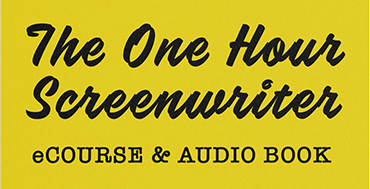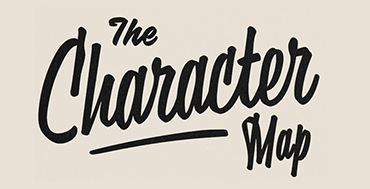
I am on my way to Perugia, Italy to work with the talented team from RAI, the Italian State Broadcaster, much like the BBC in in the UK.
Although it is very basic it’s always good to start with the five most important questions in constructing a story.
What Does the Character Want?
What the main character wants is a clear and simple ego-driven goal. It is something that directly benefits the main character that he or she can physically have or obtain. It is concrete. It is specific. It is the finite object of the character’s personal desire. For example: Win the championship trophy, get the promotion, pay the rent, solve the crime, buy the fancy car, steal the jewel, get the girl (or guy), etc.
To obtain the want, the character must abandon the need.
What Does the Character Need?
What the character needs is an inner ache or yearning that the character is unaware of, denies, suppresses, or ignores. It is a deeper, more abstract or intangible human longing. It is not physical or concrete. It is an emotional or spiritual urge or inner call to live up to one’s higher nature. For example: To become a better parent, to forgive another, to act with integrity, to find one’s faith, to become more altruistic, to be a more reliable friend, to face the truth, to love unselfishly, etc.
To embrace the need, the character must abandon the specific self-centered goal (or object of desire) and address more fundamental and far-reaching human concerns.
What is the Conflict Between the Want and the Need?
One of the most common problems with stories that don’t work is the lack of a clear and specific want vs. a deep and powerful inner longing. The want pulls us through the story. The need draws us deeper into or inside the character. If this bedrock conflict isn’t clear the story won’t add up to very much.
Does the Story Clearly Distinguish the Want and the Need?
Does the main character have a specific physical or concrete object of personal desire? What does he or she want? What is the concrete physical goal or specific objective? Does the main character actively pursue this objective through the story? Does the main character have a clearly delineated deeper human longing? What is missing deep inside the character?
What is the Price?
What is the main character willing to sacrifice or surrender to obtain the want or to embrace the need? Is there a high cost for each choice? If the character obtains the want and lets go of the need the character pays a high price in unhappiness and emotional loss.
Does that mean that no character ever gets what he or she wants? We know that’s not true. Characters get what they want all the time. But this happens in a one of two ways.
1) The character gets what he or she wants and finds that it is hollow:
For example, in Jerry Maguire, Jerry (Tom Cruise) gets what he wants, to get back in the agent game by representing a major NFL player. He finds his victory is hollow and emotionally empty when he realizes he has no one to call or with whom to celebrate after a big win. This is when he returns to his wife and family and embraces what he needs.
In Dangerous Liaisons, Vicomte Valmont (John Malkovich) gets what he wants: To seduce the un-seducible woman. He finds his victory is poisonous when he realizes he has destroyed the only woman he has ever loved and who truly loves him. The story ends tragically with his death and hers.
2) The character lets go of the want and embraces the need and then, in the classic comedic turnaround, he or she finds something even better or finds that the want comes around on the other side:
In life, this is the story of a young couple that wants to start a family. What they want is a biological child. They try and try to no avail. They realize what they need is to make a family with a child who needs them. They adopt and are deliriously happy. What happens one year later? The wife gets pregnant. This happy turnaround happens enough in life that we believe it in fiction.
Or for example, in Pretty Woman, Vivian Ward (Julia Roberts) wants to pay the rent. That’s why she picks up Edward Lewis (Richard Gere) in the first place. It’s why she stays with him over the course of the story. When he offers to meet that want by buying her a condo (and pay her rent in perpetuity) she turns him down. What she needs is to live a life of honesty and integrity. If she accepts his proposition she will always be a whore. She rejects his offer and it is that act of integrity that brings him back to her as a real suitor and a true partner (rather than as a man who is simply “buying” her).
The tougher the choice is, the better the story.
Does the main character pay dearly for whatever he or she pursues and chooses? The price is the end of the long road where the character comes face-to-face with the ultimate truth. Who is the character really? This supreme price is what the audience is waiting eagerly to see.
If the price is not high enough, the story suffers and the audience isn’t really invested in the outcome.



No comment yet, add your voice below!